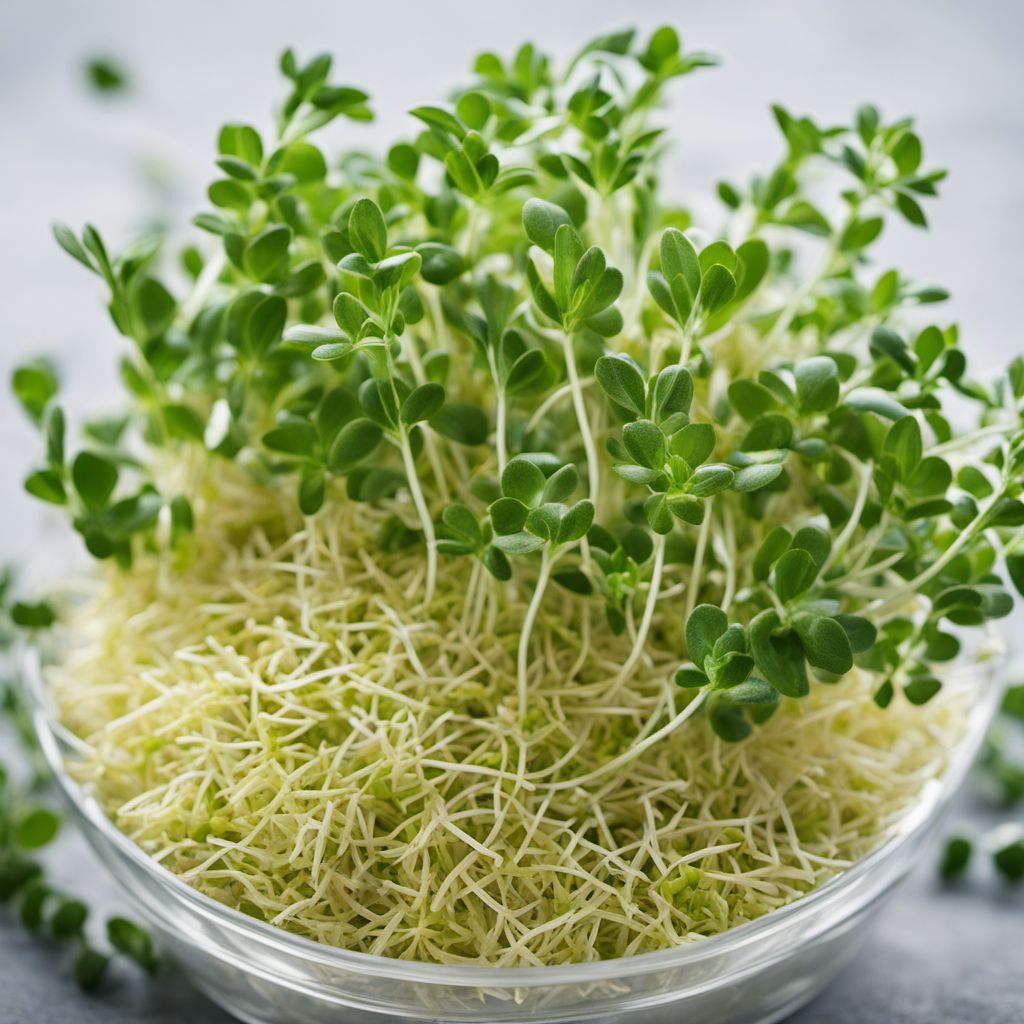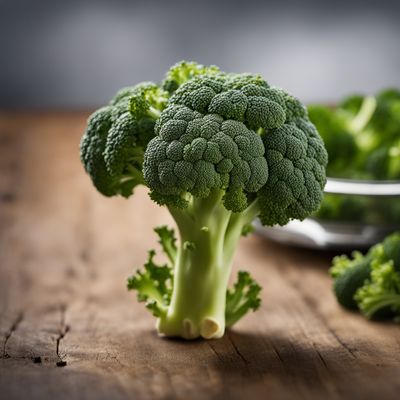
Ingredient
Alfalfa sprouts
The Mighty Microgreens
Alfalfa sprouts are small, delicate greens with a mild, nutty flavor and a crisp texture. They are typically harvested when they are just a few inches tall, making them perfect for adding a fresh and vibrant touch to a variety of dishes. These sprouts are rich in vitamins A, C, and K, as well as minerals like calcium and iron.
Origins and history
Alfalfa sprouts have been cultivated for thousands of years and are believed to have originated in the Middle East. They have a long history of use in traditional Chinese medicine and have been valued for their medicinal properties. Today, they are widely grown and consumed around the world.
Nutritional information
Alfalfa sprouts are low in calories but high in essential nutrients. They are a good source of vitamins A, C, and K, as well as folate and fiber. They also contain antioxidants and plant compounds that may have anti-inflammatory and anticancer effects.
Allergens
People with a history of autoimmune diseases or certain hormonal conditions, such as estrogen-sensitive cancers, should avoid consuming alfalfa sprouts due to their potential to interact with medications and hormones. Additionally, individuals with compromised immune systems should exercise caution as sprouts can harbor harmful bacteria if not handled and stored properly.
How to select
When selecting alfalfa sprouts, look for bright green, crisp sprouts with no signs of wilting or discoloration. Avoid sprouts that have a slimy texture or a strong odor, as these may indicate spoilage. It is also important to choose sprouts that have been stored in refrigerated sections to ensure freshness.
Storage recommendations
To maintain the freshness of alfalfa sprouts, store them in a sealed container or a plastic bag in the refrigerator. They should be consumed within a few days of purchase to ensure optimal taste and texture.
How to produce
Alfalfa sprouts can be easily grown at home using sprouting trays or jars. Simply soak the seeds in water, rinse them twice a day, and watch them sprout within a week. They require minimal space and can be grown year-round.
Preparation tips
Alfalfa sprouts can be enjoyed raw in salads, sandwiches, and wraps, adding a refreshing crunch and a mild, nutty flavor. They can also be lightly sautéed or stir-fried to enhance their taste and texture. Additionally, they make a great addition to smoothies and juices, providing a boost of nutrients.
Substitutions
Mung bean sprouts, broccoli sprouts, and radish sprouts can be used as substitutes for alfalfa sprouts. These sprouts offer a similar crunchy texture and mild flavor that can complement various dishes.
Culinary uses
Alfalfa sprouts are commonly used in salads, sandwiches, and wraps, adding a fresh and crisp element to these dishes. They are also popular in Asian cuisines, where they are often stir-fried or used as a topping for noodle dishes and soups.
Availability
Alfalfa sprouts are widely available in grocery stores, supermarkets, and farmers markets throughout the year.
More ingredients from this category » Browse all

Soyabeans sprouts
The Nutritional Powerhouse: Soybean Sprouts

Other species used for the production of sprouts or shoots
Sprouting Delights

Roman rocket sprouts
The Peppery Delight of Ancient Rome

Sunflower shoots and sprouts
Sunflower Shoots: A Burst of Freshness

Broccoli sprouts
The Mighty Microgreens

Chinese chives sprouts
The Delicate Shoots of Chinese Chives

Daikon sprouts
The Delicate Daikon Sprouts

Mung bean sprouts
The Crunchy Nutrient Powerhouse: Mung Bean Sprouts

Peas shoots and sprouts
The Green Delicacy

Wheatgrass
The Green Elixir

Cresses
The Peppery Greens

Ginger shoots
The Zesty Sprouts
